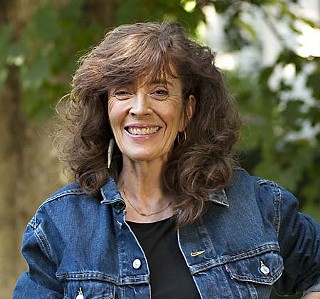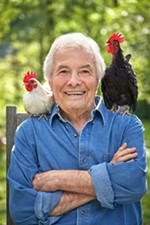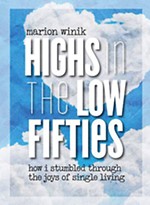2010 Texas Book Festival
The epic friendship of two writers, dog-lovers, and ex-drunks
By Marion Winik, Fri., Oct. 15, 2010
"I went from thinking I would never write about it to thinking I couldn't not write about it. That happened on the five-year anniversary of Caroline's death," says Gail Caldwell, whose memoir Let's Take the Long Way Home documents her connection with writer Caroline Knapp, who died of lung cancer at 42 in 2002. Caldwell, a Pulitzer Prize-winning book critic, wrote a homage to her Texas roots in her first memoir, A Strong West Wind. As firmly as that book was planted in Amarillo and Austin, the new book is rooted in Cambridge, Mass., the town where she and Knapp, the younger of the pair by 12 years, rowed and wrote and ran their dogs.
Austin Chronicle: Caroline Knapp is revered for her addiction memoir, Drinking: A Love Story. You'd read it at the time you became friends, yet you didn't tell her right away about your own history in recovery. Why not?
Gail Caldwell: At the time, I had a sense of privacy about the issue, probably because I got sober in 1984. Back then, "recovery" was not yet the zeitgeist. The level of shame associated with it was totally different from what it is now. I always felt that my drinking was a scary, dark truth about me, and perhaps because I was a critic for The Boston Globe, I had a line in my mind between public and private. Though I didn't intend to conceal it from Caroline, I didn't want to let her book dictate when I told her. I wanted it to be more organic than "Oh, guess what? Me too!"
AC: And now, in your book, the line really disappears. You tell the story of your own drinking, from the tough Texas gal traveling with a bottle of Jack in her suitcase to the alcohol-induced isolation and broken bones to the first glimmer that "it might be possible to give up drinking and still be cool."
GC: When I started writing about Caroline, I realized that I couldn't write this book and not write about my drinking, that it would be absurd and untruthful. I was 40 or 50 pages into it when the narrative trumped my sense of privacy. Then I started laughing, because I felt that she had tricked me into it.
AC: What were some of the other challenges?
GC: The biggest issue was to re-create the quality of the friendship, because its intimacy was based on simple dailiness. It's not like we stole a car and went to Mexico together. We wrote; we talked; we walked the dogs. As I say somewhere in the book, those routines were "the lattice that made room for the rose."
AC: On one level, the relationship had a pioneer-woman feel, lean and muscular, based on physical activity, nature, and animals. On the other it evokes the "romantic friendships" of Victorian women, whose letters reveal a tradition of extremely intense, nonsexual attachments.
GC: If you are single, a friendship with another woman can be the central fact of your life. Caroline and I were both the kind of people who were often told we were too intense. You know how people will tell you to just let it go?We didn't want to let it go; we tended to dive in rather than flee. And most importantly, we both had this capacity to go toward each other instead of away when we had conflict. So our difficulties, when we had them, made us closer.
AC: You spoke earlier of being surprised by writing about your drinking. What about the shocking thing that happens after Caroline is gone, which somehow hits even harder than the loss one is prepared for? No spoilers here, but did you always conceive that as part of the story?
GC: Not at all. Not until I had finished writing about Caroline's death did I feel that, even though that part of the story seems like a departure, Iknew I had to include it. The sense at the time that Caroline had saved the day, even if it wasn't ultimately true, conveys so much about how I lived after she was gone.
AC: And finally, what about the title?
GC: It comes from something Caroline would say after our walks with our dogs. We'd be so deep in conversation that we'd drive "the long way" through traffic on purpose. Then we would go inside our houses and call each other. Honestly, I still talk to her all the time.
You Can Tell Me Anything: Friends as Family
With Gail Caldwell and Emily Fox GordonSunday, Oct. 17, 12:30-1:30pm, Capitol Extension, Rm. E2.014











